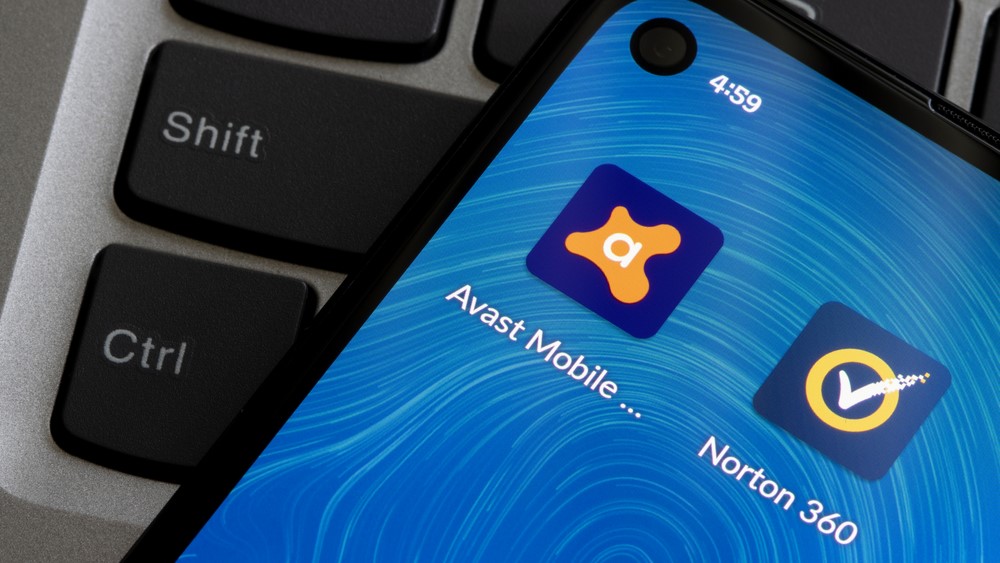NortonLifelock merging with Avast — what does this mean for you?
Could the combined company kill free antivirus software?

Last week U.S.-based NortonLifeLock, the world's biggest antivirus company by market share, announced that it was intending to merge with Czech Republic-based Avast, the world's second-largest antivirus company, pending shareholder and regulatory approval. The combined company would have a whopping 25% of the global Windows antivirus market.
This news came eight months after NortonLifeLock bought Germany-based Avira , and five years after Avast gobbled up its Czech rival AVG. A month after the Avira deal closed in January of this year, Avira itself absorbed London-based antivirus maker Bullguard.
- Your Wi-Fi router might tell everyone where you live — here's what you can do
- The best antivirus software, free and paid
- Plus: How to see who's on your Wi-Fi network
If this latest deal goes through, Norton, which itself bought identity-theft-protection industry leader LifeLock in 2017, will become the General Motors of the consumer antivirus industry.
The move could have a direct impact on consumers. Avast, AVG and Avira are all known for dependable, free antivirus software, while Norton has no free antivirus offerings and charges some of the highest prices in the industry.
So what does all this rapid consolidation mean for the free antivirus industry?
Don't fix what ain't broke
If Avira's current situation is any guide, the intended merger may not change much for the short term. Norton seems to have left Avira pretty much alone since its acquisition, with Avira retaining its own software, marketing and even PR team.
There's almost no indication on the Avira website that Norton now owns it, and the companies still use separate malware-detection engines, as indicated by their differing lab-test scores.
Sign up to get the BEST of Tom's Guide direct to your inbox.
Get instant access to breaking news, the hottest reviews, great deals and helpful tips.
Likewise, Avast has retained AVG's branding and marketing five years after those two companies merged, along with separate product lines. Avast's argument has always been that AVG was strong in regions where Avast was weak, and vice versa, so it made sense to combine them as separate brands.
Current Avast CEO Ondrej Vlcek echoed similar themes in the Norton merger announcement, stressing the "greater geographic diversification" that the "well-established" brands would deliver.
But under the surface, the Avast and AVG malware-detection engines were combined — for the better, according to third-party lab tests — and back-office redundancies were eliminated.
We have to expect similar consolidation and streamlining will take place within the new Avast-AVG-Avira-BullGuard-NortonLifeLock behemoth.
One thing we won't see is the end of free antivirus software. In some form or other, Avast, AVG and Avira will still continue to offer it, although one or two of the brands may be "retired" like old car models.
Unlike its rivals Kaspersky and Bitdefender, Norton has never offered free AV software, so this deal and the Avira one before it close that gap.
The looming specter of Microsoft
The bigger issue looming on the horizon is how long the status quo in the antivirus industry can last. The Microsoft Defender antivirus software built into Windows used to be an embarrassing joke, but in the past few years it's made a remarkable turnaround and is now one of the best antivirus programs in the industry.
Microsoft Defender still has a few shortfalls — it doesn't adequately protect web browsers that aren't made by Microsoft, for example — but you can now legitimately say that it's all the antivirus software you need, as long as you don't require extra features like parental-control software or a password manager.
So where does this leave the third-party antivirus providers? Why would you pay for one if you can get what you need for free from Microsoft?
Consumers don't yet seem to be asking themselves these questions. The antivirus market is booming, and 82% of U.S. households reported using antivirus software in a recent survey.
But most of the bigger brands have been rapidly adding extra features to their software, such as parental-control software and password managers, that Microsoft Antivirus doesn't immediately provide.
Norton has gone further than any other antivirus provider in this regard, with its pricier plans also including backup software, online storage, unlimited VPN service and full identity-theft protection. It has already positioned itself as the one-stop shop for all your security and privacy needs.
With its acquisition of Avast, and the huge market share that will result, Norton may be trying to bulk itself up against a possible industry decimation and make itself, well, too big to fail. With five well-known brands under its belt, it's certainly going to be hard to avoid.
Paul Wagenseil is a senior editor at Tom's Guide focused on security and privacy. He has also been a dishwasher, fry cook, long-haul driver, code monkey and video editor. He's been rooting around in the information-security space for more than 15 years at FoxNews.com, SecurityNewsDaily, TechNewsDaily and Tom's Guide, has presented talks at the ShmooCon, DerbyCon and BSides Las Vegas hacker conferences, shown up in random TV news spots and even moderated a panel discussion at the CEDIA home-technology conference. You can follow his rants on Twitter at @snd_wagenseil.

